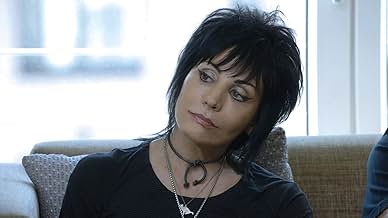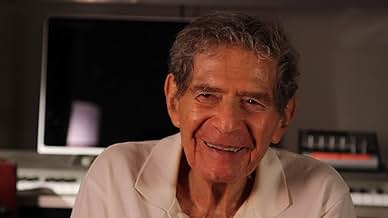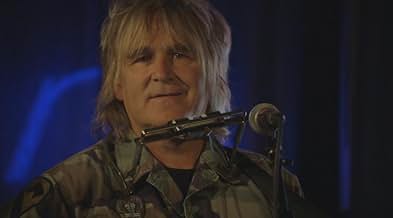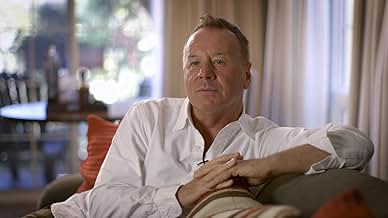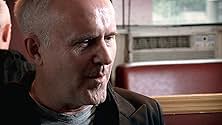अपनी भाषा में प्लॉट जोड़ेंIn 1982, a small radio station battles to bring the New Wave to America.In 1982, a small radio station battles to bring the New Wave to America.In 1982, a small radio station battles to bring the New Wave to America.
M. King Adkins
- Self
- (as Dr. M. King Adkins)
Pete Byrne
- Self - Lead Singer, Naked Eyes
- (as Peter Byrne)
फ़ीचर्ड समीक्षाएं
For anyone over 40 this movie will bring them back to a time when new wave was hitting the US. It is the story of the radio station in NY that brought the music here first and played over 1500 new wave artists in its short time on the air. The movie tells the really interesting story of life at the radio station when all these acts were young and unknown - so many to go on to be mainstays on 80's radio. But at the time for me and so many it was a revelation to hear this music.
Great interviews with the artists and producers. So much great music and live footage in the movie. You are transported back to 1982 and the movie brings back that fresh feeling of hearing things for the first time, along with great interviews that tell us what the artists were thinking.
Instant classic!
In 1982 I was 18 and a year out of high school. It was amazing to here about the clubs I used to frequent, the artists that started out of Long Island and that even thought at the time I didn't know it, and I'm sure none of us did, WHAT an impact it really was to the music world and how proud I am that I was part of that.... Definitely a film to keep in my collection. Thanks for the Memories.
I know for sure that 2 college radio stations in the Boston area, WERS and WMBR, and 2 commercial stations - WBCN in Boston and KROQ in Los Angeles - were among various American radio stations that turned people on to many of the bands that WLIR claimed to have been "the first" to, and by several years. I was annoyed by how DJ's and staff in the film patted themselves on the back in taking such credit. WLIR changed format in 1982. U2's first album was released in the US 2 years earlier and was played at all the stations cited. That's just one example. Sure, WLIR helped expose the music which generated album sales, but don't claim something that is not true. It diminishes the legitimacy of the documentary. I cringed watching it. The listeners and staff obviously dug the commercial alternative format and the filmmaker shows that. I did enjoy seeing musicians that I liked remembering those days. Overall, great that 'LIR dared to be different but don't make false claims that you were the first, etc. And nobody likes a braggart anyway.
I echo the sentiment of the Southern California reviewers. "New Wave" music was introduced into North America in many locations in parallel. We had a local university radio station playing this music circa 1977-78. It took a while for the mainstream FM stations to introduce this music to their playlists but it was here and available for listening well before 1982 on FM radio, TV and album imports. I suppose it was a gamble for an FM radio station to go full New Wave in 1982 but certainly not pioneering as this documentary alludes to.
The documentary was somewhat confusing, jumping all over the place with respect to artists and dates. Information presented chronologically would have been clearer.
The documentary was somewhat confusing, jumping all over the place with respect to artists and dates. Information presented chronologically would have been clearer.
Something that bothered me when I watched this was that there was no mention at all of the station that immediately followed LIR on the airwave. The wikipedia page basically lists them both as one entity The movie producers clearly chose to ignore the reincarnation of the station, which I didn't mind if they hadn't done it without making a single mention of the WDRE station that succeeded LIR. To leave it out without a mention, even a sentence in the epilogue, makes it seem pretty obvious that they went far out of their way not to mention the later station.
At some point the new station took the old LIR moniker, the movie could have helped clear up the confusion about the call letters by explaining what happened with the call letters over time, but by leaving it out they only added to it.
At some point the new station took the old LIR moniker, the movie could have helped clear up the confusion about the call letters by explaining what happened with the call letters over time, but by leaving it out they only added to it.
क्या आपको पता है
- भाव
Michael Pagnotta: It was a movement in technology. And the difference between what Vince Clarke or Martin Gore, as opposed to what Keith Emerson could do, was completely different. The battery of keyboards that Wakeman and Emerson had to have on stage, I was the biggest Yes and the biggest ELP fan, so I love the sound of the Moog synthesizer. But, that was not a portable situation.
- साउंडट्रैकMy Way
(Comme d'Habitude)
Music by Claude François and Jacques Revaux
French lyrics by Gilles Thibaut
English lyrics by Paul Anka
Performed by Sid Vicious
टॉप पसंद
रेटिंग देने के लिए साइन-इन करें और वैयक्तिकृत सुझावों के लिए वॉचलिस्ट करें
विवरण
- रिलीज़ की तारीख़
- कंट्री ऑफ़ ओरिजिन
- आधिकारिक साइट
- भाषा
- इस रूप में भी जाना जाता है
- Посмей быть другим
- फ़िल्माने की जगहें
- लॉस एंजेल्स, कैलिफोर्निया, संयुक्त राज्य अमेरिका(on location)
- उत्पादन कंपनियां
- IMDbPro पर और कंपनी क्रेडिट देखें
- चलने की अवधि1 घंटा 35 मिनट
- रंग
इस पेज में योगदान दें
किसी बदलाव का सुझाव दें या अनुपलब्ध कॉन्टेंट जोड़ें



